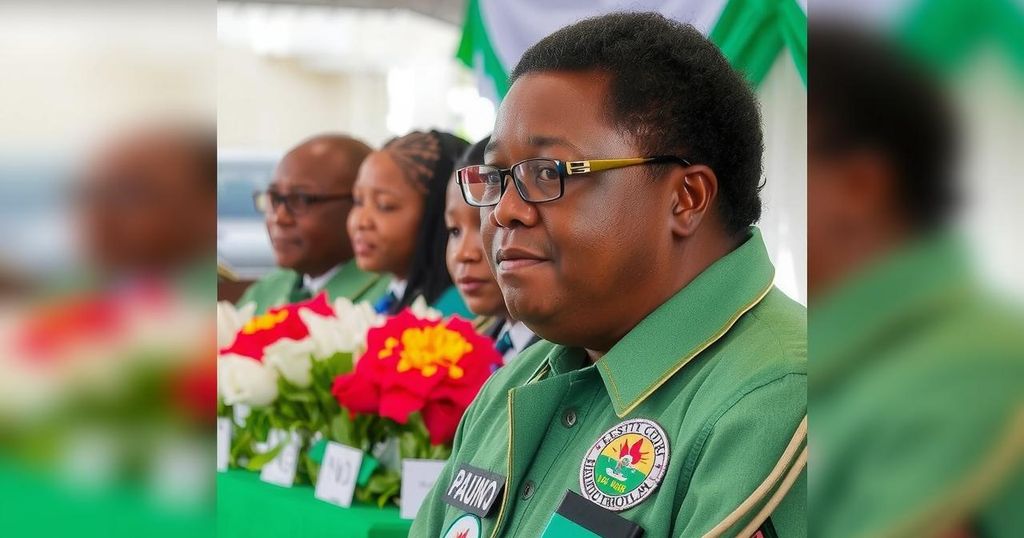Comoros has declared a week of national mourning due to the devastation caused by Cyclone Chido, which hit Mayotte, where authorities fear hundreds have perished. President Azali Assoumani’s mourning period addresses the significant loss of life and property damage. Efforts for rescue and humanitarian support are ongoing, with concerns about food and water shortages increasingly urgent after the cyclone’s destructive impact.
On Monday, the Comoros government declared a week of national mourning following the devastation wrought by Cyclone Chido, which primarily affected the neighboring island of Mayotte. President Azali Assoumani announced that the mourning period would extend until Sunday, highlighting the significant loss of life and destruction of infrastructure in the Indian Ocean archipelago. Cyclone Chido, classified as a category four storm, caused winds exceeding 220 kilometers per hour, resulting in catastrophic damage to shantytowns largely inhabited by Comorans.
Mayotte, which remains a French territory, faces an alarming humanitarian crisis with authorities estimating “several hundred” fatalities, particularly among its vulnerable shantytown populations. Eyewitness reports indicated that makeshift dwellings were obliterated, leading to severe concerns regarding casualties. French officials have mobilized military resources to facilitate urgent rescue operations. These include deploying naval vessels and aircraft to deliver essential supplies and personnel to the beleaguered island.
The storm’s impact has been severe, with widespread outages of electricity and communication systems reported across Mayotte. Food and clean water shortages are emerging as urgent concerns, as many shelters are ill-equipped for the influx of displaced individuals. Senator Salama Ramia of Mayotte urged immediate aid efforts to alleviate the dire situation, emphasizing the urgent needs of vulnerable populations, particularly children. The cyclone marks the most destructive weather event to hit Mayotte in nearly a century.
Efforts from France and nearby territories continue to prioritize humanitarian assistance and restore order amidst the chaos. The local government faces considerable challenges in accurately assessing the death toll, as many victims may be unregistered individuals lacking proper documentation. As rescue operations unfold, the international community watches closely, extending support in the hope of alleviating the humanitarian crisis.
French authorities estimate the permanent population of Mayotte at approximately 320,000, with a significant portion comprised of Comorans, many of whom undertake perilous journeys to reach the island. The aftermath of Cyclone Chido underscores the ongoing socio-economic vulnerabilities faced by this region, amplifying the calls for comprehensive disaster response measures.
The Comoros and Mayotte are part of an archipelago in the Indian Ocean, with Mayotte being a French territory since the 1970s when it opted to remain part of France amidst the independence movements of the other islands. Mayotte has been categorized as the poorest territory within the European Union, facing longstanding challenges related to irregular immigration, infrastructural deficits, and socio-economic hardships. Thus, natural disasters such as Cyclone Chido exacerbate pre-existing vulnerabilities, leading to dire humanitarian consequences and highlighting the need for effective disaster preparedness and response strategies.
Cyclone Chido has inflicted catastrophic damage on Mayotte, prompting the Comoros to declare a week of mourning for the affected populations. With potential fatalities numbering in the hundreds, urgent humanitarian assistance remains crucial. The disaster underscores the vulnerabilities of this region and stresses the importance of both immediate relief efforts and long-term strategies to address systemic issues in the archipelago.
Original Source: www.arabnews.com






